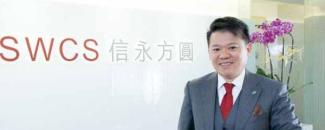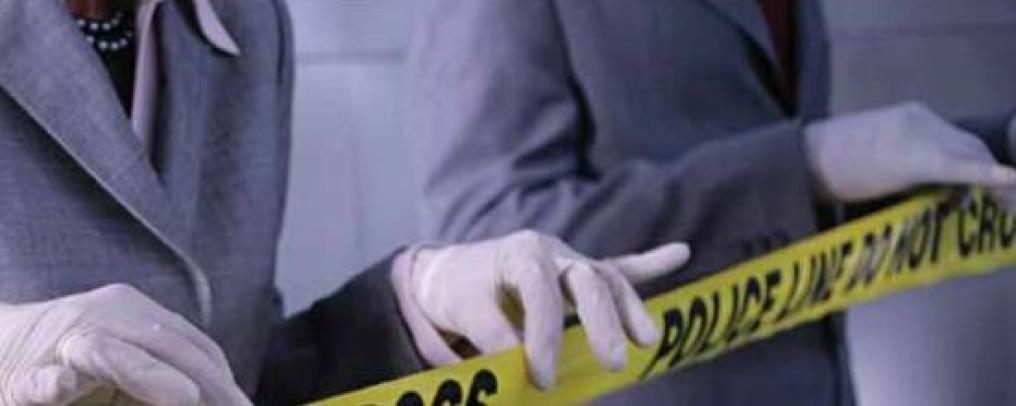Dr Maurice Ngai, CEO of SW Corporate Services Group Ltd, discusses his aspirations as the newly elected president of the HKICS.
Congratulations on your election as HKICS President – can we start by discussing what you would like to achieve in this role?
'I would like to keep up the momentum that we have seen in recent years. Last year we had a surplus of HK$7 million and, hopefully, we can keep it at that level. That is very important because our financial resources enable us to execute our initiatives, to expand our services and activities, and to retain good staff. We need to build a strong secretariat. We have Samantha, our past president, as our chief executive. So we have a passionate chief executive, fully devoted to the work. Samantha will work with me to make sure we have a good foundation for the future by developing a strong and stable secretariat. I would also like to give our Beijing Representative Office (BRO) the ability to take more initiative in our Mainland China work. The BRO reports to the Hong Kong office, of course, but I think it can be more proactive – that way it can react more quickly as things evolve in the Mainland and it will have more control over its work. I think we will see more PRC nationals becoming our members in the future. We are the China division of the ICSA and we need to build up the profession in China, but the benefits of this will be seen by our Hong Kong members too. Mainland China is a much bigger market than Hong Kong and it makes sense for our members not to restrict themselves to Hong Kong opportunities. Many multinationals and foreign enterprises have established their place of business in China and it is expected that more will enter the Mainland market. They definitely need professional services and professionals with international qualifications are probably the ones they would look for. So we need to help our members build up their knowledge of the Mainland. They need information not only about the changing regulatory requirements, but also the changing job market and the changing business environment. The BRO helps greatly with this task. It helps to broaden the horizons of our membership, in particular getting them to think about what's happening in the Mainland and how they need to prepare themselves to be able to seize the opportunities as they arise. This is very important. We have been increasing the China content of our professional development programme in recent years, but I think that we also need to arrange for more Mainland visits. In the past we have arranged visits, which are open to members and students, to help them to have more direct interaction with Mainland enterprises. These visits have helped our members to build up their network of connections in the Mainland and have also helped them to get a better understanding of the culture, operations and management of modern Chinese enterprises and the fast-changing macro environment there.'The Hong Kong and Mainland China markets are still very far apart in many ways – do you think we will see greater convergence between the two markets in the years ahead?
'Recently we saw the launch of Shanghai-Hong Kong Stock Connect. This type of co-operation between stock exchanges facilitates cross-border investments. The next step will be a similar link with Shenzhen. These links will probably highlight for investors the discrepancies in the listing rules and compliance and corporate goverance practices between these two markets. Regulators from the two markets need to co- ordinate their efforts to faciliate investors' understanding of the rules, regulations and practices of the respective markets. There are very apparent drastic differences in the way corporate actions, for example rights issues, are carried out by listed companies in Hong Kong and A-share companies in China. While these developments will facilitate more interaction between the two markets, they will also open up opportunities for our members to help our counterparts in the Mainland to meet higher international standards and practices following the trend towards tougher regulatory standards in Hong Kong and Asia in recent years. For example, if you are a director in Hong Kong or in the Asia market, you will no doubt be aware of the greater burden on directors. Company secretaries are in demand to assist directors, particularly with regulatory compliance.
But, as you say, there are a lot of structural differences between the two markets and it is not hard to see why the two markets will not be able to merge in the foreseeable future. But I think we will see more interaction and more co-operation, rather than a merger. China has its own ownership structures and even the professional institutes are different. For example, the China Institute of Certified Public Accountants (CICPA) is part of, and under the supervision of, the Ministry of Finance (MOF). The same goes for the China Association for Public Companies (CAPCO), which is supervised by the China Securities Regulatory Commission (CSRC).'
Do you think we will see the establishment of a professional body for board secretaries in Mainland China? There has been speculation that the establishment of CAPCO may represent China's first step towards the professionalisation of the board secretary position in China?
'CAPCO is involved in many different issues relevant to listed companies, it was not set up solely for building up the board secretarial profession, but certainly one of its agendas is to try to build up a more structured approach to training board secretaries. Relying on the training delegated by the CSRC to the Shanghai and Shenzhen stock exchanges is not enough. At the moment board secretaries only have to complete the three- or four-day training course organised by these stock exchanges, which, as you can imagine, can't really prepare them for the board secretary role. I don't think professionalising the board secretary role is a high priority for China right now, but it is certainly on the agenda and I think the infrastructure is already there. As you mentioned, the establishment of CAPCO was a step forward but bear in mind that it took many years to set up CAPCO. China is changing gradually. It appears to be moving quickly but often the big changes are actually the result of gradual changes going on unseen. So we need to be alert and understand what will be next. I think we should not only focus on CAPCO, we need to consider working with industry associations. CAPCO, as the national listed company association, is important of course, but in recent years, due to the deregulation of the ministries, we have seen the establishment of some industry associations, such as those in the insurance and automobile sectors. They come together to share information and look after the interests of those sectors of the economy and to regulate themselves. We will see this trend in years to come. I think the BRO should monitor these developments, looking in particular at the implications for compliance, governance and our profession. This is an interesting new area for us.'What role is Hong Kong and the HKICS playing in all of this?
'At the moment we can only share experience. We cannot require our counterparts in China to do anything, but we are able to share our experience. As China develops, it is playing a bigger role in the international arena and it has been learning from Hong Kong and other parts of the world. An example of this is the way that China is changing its approach to regulation. Regulators are moving away from intervening too much in the market. Companies are expected to be responsible for their own governance like in Hong Kong – they need to have integrity and an effective system to ensure compliance with the requirements. At the same time, China is building up a better infrastructure of laws and regulations and is imposing more stringent enforcement. This is an area where Hong Kong has experience to share. Regulators no longer monitor everything in the market, but they have given out a clear message that “if you do wrong, we will penalise you severely”. Companies, in particular listed companies, have to rely on more robust internal control systems with the right professionals to ensure proper compliance. The professionalisation of board secretaries is only a matter of time.'Going forward, what will be the strategy of the HKICS in the key areas of its work – education, member services and professional development?
'As you know we are fortunate to have growing numbers of students and members, and we need to take good care of them – in particular giving them sufficient support in their studies and their careers. Of course, we provide assistance to the students taking our examinations – all professional bodies have this duty – but we also organise a lot of activities. We have the Student Ambassadors Programme and we have the 'collaborative courses' set up in association with local universities. The Institute is also responsible for an increasing number of students in Mainland China. At the moment we only have one venue for IQS examinations in China – in Beijing. This means that many students have to fly to Beijing to do the exams, so we are looking into establishing an examination centre in Shanghai.
Of course, once students finish their examinations they become graduates and then migrate to membership. We will be looking at how to enhance the help we give members with their careers. This is a very important area for us. Our members can become company secretaries in listed companies, but our qualification is not just for the listed company sector. It is also relevant in the management and administration sectors, for example, so I think we need to be more proactive in reaching out to employers and regulators to get better recognition and understanding of our role.'
The Australian and New Zealand divisions of ICSA have changed their names recently, becoming 'governance institutes' – do you think a similar name change would be appropriate for the HKICS?
'There has been some pressure for a name change. There is a Chinese saying: 名不正言不順 ("you need the right name before you do the right job”). But the term "company secretary" has been used for a long time so people within our industry understand that term.
On the other hand, there has been a trend for members of our profession to be seen as "governance professionals". This does not only apply to company secretaries, the Hong Kong Institute of Certified Public Accountants, for example, describes itself as a governance body. Accountants can be described as governance professionals in term of corporate reporting and internal controls, and company secretaries can be described
as governance professionals because we are responsible for helping companies with regulatory compliance and corporate governance best practices.
Any change of name would have to be preceded by a lot of planning. We are in a different situation from Australia since the HKICS, along with other professional bodies, is named in our listing rules and I don't think that was the case in Australia. So we may not be able to follow the same path as Australia.'
Would you like to comment on the new relationship between the HKICS and the Institute of Chartered Secretaries and Administrators (ICSA) since the recent reforms to the ICSA's governance structure?
'I think we are now in a better position to work with the ICSA. Edith Shih, our immediate past president, has been appointed a Vice-President and an executive committee member of the ICSA. We are part of an international family and that is very important to us. Of course, our members enjoy the benefit of having dual memberships – the ICSA as well as the Hong Kong membership – but the new relationship also means that we are in a better position to leverage on the international nature of the profession. The ICSA, which offers an international qualification, was previously rather low profile in the area of international development, but it is working towards its new mission: to be the leading global professional institute in governance. The Corporate Secretaries International Association (CSIA), which came into the picture in 2010, is working on a number of practical projects to help promote the corporate secretarial and governance profession internationally. This will mean that we can be more influential and more active in the international arena in terms of corporate governance.
Until now, the ICSA has been more focused on qualifications and qualification assurance. The ICSA Professional Standards Committee, for example, is an important part of maintaining the quality of professional standards around the world.'
Going forward, what will the Institute's strategy be in the three areas of Hong Kong, Mainland China and internationally?
'In Hong Kong, we are growing in terms of the numbers of students and members and we are highly regarded by regulators. In the Mainland, we established our Affiliated Persons programme, which is unique and successful in establishing our presence and providing a foundation for future development. Internationally, we, together with other ICSA divisions, successfully pushed through the recent reforms of the ICSA – it is now poised to take a new and much more globally-oriented course. The establishment of the CSIA enables us to join forces with ICSA divisions, as well as other non-ICSA countries, to carry out practical initiatives affecting the company secretarial and corporate governace profession in a global dimension. My view is that we are not working in isolation, or in a mutually exclusive manner, and we can leverage on what we have done. We intend to build our strategic relationships in these three areas and identify our strategies going forward. The Council and secretariat are going to have a strategy meeting to look into our initiatives for this year.'Readers of this column often give us feedback that they like hearing about the personal and professional backgrounds of our interviewees. Could we talk about your own background?
'I took the ICSA examinations and qualified in 1990. I started my career as a company secretary with a CPA firm and then joined a legal firm and studied for my law qualification. I then moved into the corporate world as a company secretary, but I remained interested in the law, so I completed my LLB programme. After helping the company I worked for to become a listed company, I moved on to doing company secretarial work as an executive director in another listed company. Then I spent nearly 15 years in many other listed companies, during which I decided I needed to get more knowledge in management and corporate finance because I was doing a lot of work in mergers and acquisitions, so I took an MBA and subsequently a master in corporate finance. I also studied with ACCA and became a member of the Hong Kong Institute of Certified Public Accountants.
I had been working with companies from Mainland China for some time, giving advice on IPO listings in Hong Kong. So I wanted to pursue a higher academic qualification in this area, both for my own benefit and to do a better job for clients. Therefore, I pursued my highest degree, my PhD. Actually, having higher educational qualifications helps a lot when you are dealing with Mainland clients, they are more likely to listen and follow your advice.
Taking a PhD programme in Corporate Finance at Shanghai University of Finance and Economics helped me understand the mentality of the people in China and also helped with my written simplified Chinese.'



